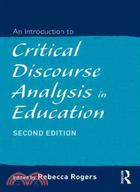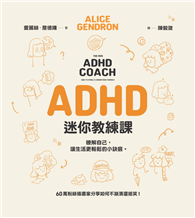"Rebecca Rogers offers one of the most sincere, committed approaches to discourse theory and its importance in addressing issues of power, social justice, and critical implications of different forms of communication. This book is a tribute to her in-depth approach to critical discourse analysis as a key field in contemporary literacy research and theory." ---Jennifer Rowsell, Brock University, Candada
"Students experiencing discourse analysis for the first time will find this text very helpful. It provides a wonderful rationale for discourse analysis and the role it plays in instruction and learning." ---Debra Price, San Houston State University
Accessible yet theoretically rich, this landmark text introduces key concepts and issues in critical discourse analysis and situates these within the field of educational research. The book invites readers to consider the theories and methods of three major traditions in critical discourse studies---discourse analysis, critical discourse analysis, and multimodal discourse analysis---through the empirical work of leading scholars in the field. Beyond providing a useful overview, it contextualizes CDA in a wide range of learning environments and identifies how CDA can shed new insights on learning and social change.
Detailed analytic procedures are included---to demystify the process of conducting CDA, to invite conversations about issues of trustworthiness of interpretations and their value to educational contexts, and to encourage researchers to build on the scholarship in critical discourse studies.
New in the Second Edition: This edition features a new structure organized around three traditions in CDA: Discourse Analysis, Critical Discourse Analysis, Multimodal Discourse Analysis; a touchstone chapter in each section by a recognized expert in the approach/ theory (James Paul Gee, Norman Fairclough, Gunther Kress); and a stronger international focus on both theories and methods.
| FindBook |
有 2 項符合
An Introduction to Critical Discourse Analysis in Education的圖書 |
 |
An Introduction to Critical Discourse Analysis in Education 作者:Rebecca Rogers 出版社:Routledge 出版日期:2011-01-24 規格: / 304頁 |
| 圖書館借閱 |
| 國家圖書館 | 全國圖書書目資訊網 | 國立公共資訊圖書館 | 電子書服務平台 | MetaCat 跨館整合查詢 |
| 臺北市立圖書館 | 新北市立圖書館 | 基隆市公共圖書館 | 桃園市立圖書館 | 新竹縣公共圖書館 |
| 苗栗縣立圖書館 | 臺中市立圖書館 | 彰化縣公共圖書館 | 南投縣文化局 | 雲林縣公共圖書館 |
| 嘉義縣圖書館 | 臺南市立圖書館 | 高雄市立圖書館 | 屏東縣公共圖書館 | 宜蘭縣公共圖書館 |
| 花蓮縣文化局 | 臺東縣文化處 |
|
|
圖書介紹 - 資料來源:博客來 評分:
圖書名稱:An Introduction to Critical Discourse Analysis in Education
|




![塔木德:猶太人的致富聖經[修訂版]:1000多年來帶領猶太人快速累積財富的神祕經典 塔木德:猶太人的致富聖經[修訂版]:1000多年來帶領猶太人快速累積財富的神祕經典](https://media.taaze.tw/showLargeImage.html?sc=11100697818)






